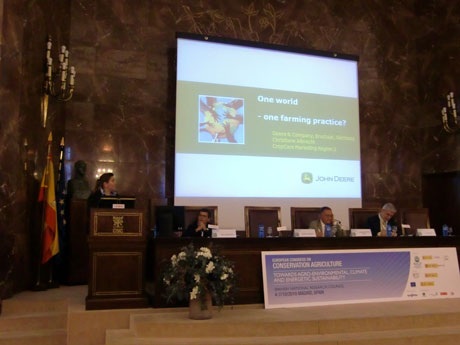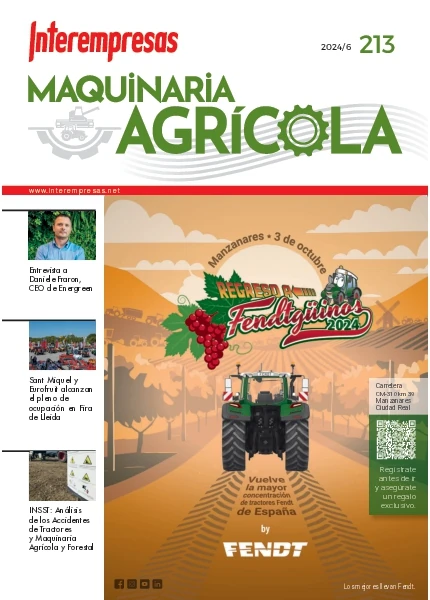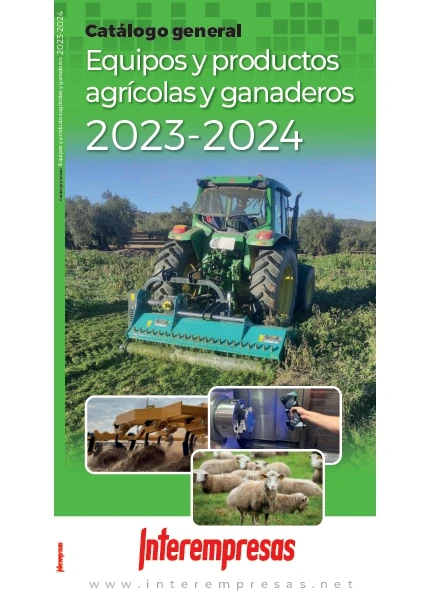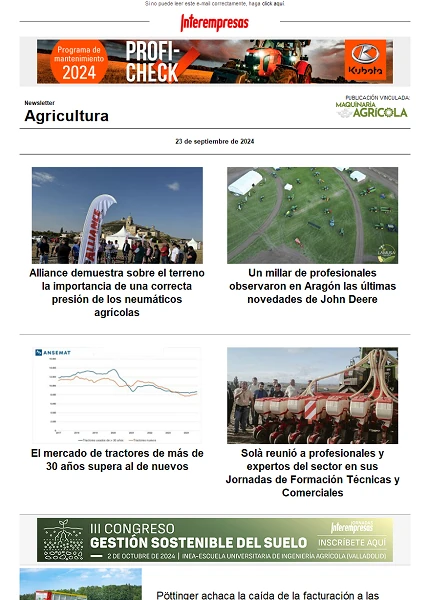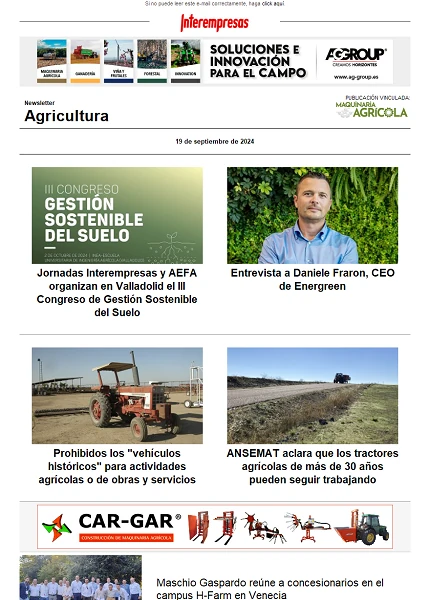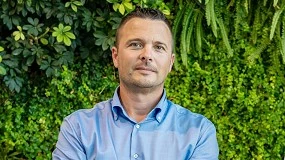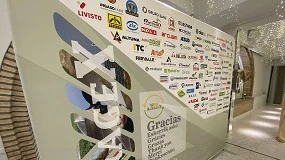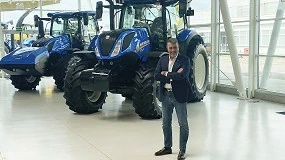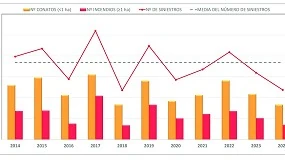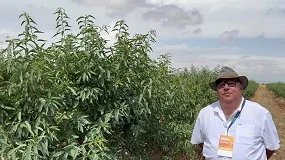Europa apuesta por la agricultura de conservación
22 de octubre de 2010
Unir sostenibilidad y agricultura siempre ha sido complicado por las implicaciones económicas que ello conlleva. El paso de la agricultura tradicional a la de conservación (mal llamada en nuestro país como “ecológica”) no es sencillo y crea siempre complicaciones en cuanto a precios y distribución. Pero la Unión Europea ha decidido darle un impulso e intentar reverter el complicado escenario en el que actualmente nos encontramos.
Durante el Congreso Europeo sobre Agricultura de Conservación, celebrado en Madrid entre el 4 y el 7 de octubre, el europarlamentario Stéphane Le Foll, miembro del Comité de Agricultura y Desarrollo rural del Parlamento Europeo, apostó en un encuentro con periodistas por un cambio en la política rural, que debe pasar de la “ecocondicionalidad” a la “ecocertificación”. De este modo, se cumplirian objetivos claros a nivel de parámetros como la materia orgánica del suelo, el nivel de fijación de carbono en el suelo, reducir los niveles de erosión y el respeto a la biodiversidad, entre otros.
Comenzó además su intevención dejando las cosas claras: “La agricultura no debe ser un problema para el medio ambiente, sino una solución”. Le Foll, que es autor de la moción aprobada por el parlamento europeo titualda “Agricultura en la Unión Europea y Cambio Climático”, cree que la nueva PAC debería “incentivar acciones que contribuyan a mejorar la eficacia y el potencial de atenuación de las emisiones de gases de efecto invernadero de la agricultura, así como la captura de carbono”.
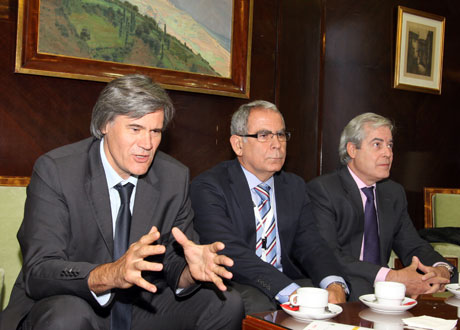
En este sentido, opinó que “la agricultura debe ser parte de la solución a la lucha contra el cambio climático y es necesario que los agricultores convencionales apuesten por técnicas conservacionistas”. El europarlamentario explicó a los presentes que en su opinión “hay que combinar medio ambiente y productividad, porque hay mucha malnutrición en Europa y en todo el mundo”.
Además, apostó firmemente por la agricultura de conservación afirmando que esta “debe ser una vía para que los agricultores convencionales sean más sostenibles y generen un menor impacto sobre el medio ambiente”. Teniendo en cuenta que el 5% de la agricultura europea es de conservación, los objetivos de Le Foll parecen claros, “se debe convencer al 95% restante para que adopten este sistema”.
Los beneficios energéticos
Otro de los asistentes al encuentro con los periodistas fue el máximo responsable del área de Agricultura y Servicios del Idae, Ángel Sánchez de Vera, quien cree que este sistema de cultivo es muy beneficioso para mantener el suelo sin degradarlo, para mejorar su rendimiento y conseguir un mayor ahorro energético. En este sentido, afirmó que “el Instituto apuesta por la agricultura de conservación debido a las reducciones en consumos energéticos que conlleva, estimándose un descenso medio del 30% en cereales en secano”.
Por otra parte, Sánchez de Vera aseguró también que “en la siembra de abono de una sola pasada consigue un ahorro del 35% en el consumo de energía”. Además, constató el compromiso del Idae con esta tecnología afirmando que sus objetivos son, en primer lugar, darla a conocer, y en segundo lugar, promocionar la compra de esta maquinaria, que aunque sea más grande y pesada, será subvencionada para actividades como el laboreo o la protección ambiental.
Por otra parte, Jesús Gil Ribes, doctor ingeniero agrónomo y catedrático de la Universidad de Córdoba, también presente en el encuentro con periodistas, quiso añadir varios datos interesantes sobre la agricultura de consevación. El primero fue un matiz. En nuestro país se suele llamar “agricultura ecológica” a la “orgánica” o “de conservación”, cuando esto no es correcto, ya que hay muchos tipos de agricultura que, efectivamente, son ecológicas, pero que no son en absoluto “de conservación” ni respetuosas con el medio ambiente. En Europa, y debería comenzar a usarse también en España, el término correcto es “de conservación”, no “ecológico”.
Seguidamente, el señor Gil elogió las virtudes de este tipo de sistema de cultivo, afirmando que utilizándola “se reducen las emisiones de CO2 y se consigue enriquecer el suelo”. Por otra parte, también destacó que este sistema consume menos energía y evita el uso de técnicas como el laboreo intenso. También quiso apostar por las cubiertas como herramientas de cultivo, ya que “producen una mejora substancial del suelo, de la biodiversidad y del medio ambiente”, al ser técnicas sostenibles.
Un poco de historia
La agricultura de conservación tiene sus orígenes en Estados Unidos. En la década de 1930 a 1940, tuvieron lugar varios años sucesivos de sequía en las llanuras centrales que originaron graves problemas de erosión eólica, provocando grandes pérdidas económicas en el sector. Para combatir esta erosión se desarrollaron nuevos equipos de laboreo que permitían descompactar el suelo y controlar la flora adventicia pero sin invertir el terreno, dejando en superficie abundantes restos vegetales de los cultivos precedentes.
Este método se extendió rápidamente por todas las zonas secas de los EE UU, no solo por su capacidad para combatir la erosión del suelo, sino también por su capacidad para conservar la humedad edáfica. En 1935 se creó en ese país el Servicio de Conservación del Suelo que, en los años siguientes, estimuló la creación de equipos de investigadores dedicados al laboreo de conservación en numerosas universidades americanas.
A pesar de las mejoras propuestas por estas técnicas, sin la disponibilidad de herbicidas adecuados, la flora adventicia se convertía en un factor limitante para el desarrollo de dichos sistemas de conservación de suelo. Es a partir de los años 50, con la aparición de herbicidas de acción total no residuales, más eficaces en el control de las malas hierbas y que permitían destruir toda la vegetación presente en el momento de la siembra sin riesgo para el cultivo, cuando la implantación de las técnicas de agricultura de conservación empiezan a generalizarse.
En los países del norte de Europa, la combinación de los efectos negativos causados por el laboreo excesivo (particularmente en suelos húmedos) con la disminución de la población rural y el aumento de los costes de maquinaria, llevó a muchos investigadores a plantearse una reducción de las labores. Sin embargo, la existencia de subvenciones enfocadas a la producción y no a la sostenibilidad medioambiental, en las medidas contempladas en la Política Agraria Comunitaria en sus orígenes, no motivó el cambio de modelo agrícola, por lo que los sistemas de conservación se fueron introduciendo más lentamente.
No obstante, desde la reforma de la PAC de 1999 (Agenda 2000) y más aún con la nueva reforma de la PAC iniciada en 2003, la Unión Europea dió un giro en busca de una agricultura más beneficiosa para el medio ambiente, en la que tienen cabida las técnicas de agricultura de conservación. Esto hace que en la actualidad la superficie bajo estas prácticas esté en aumento.
En España, los primeros estudios sobre agricultura de conservación en cultivos anuales de los que se tienen constancia datan de 1976, en la finca 'Hazá del Monte', en Sevilla. En estos ensayos, enfocados a conseguir un adelanto de la fecha de siembra en segunda cosecha, se evaluó la siembra directa de la soja sobre rastrojo de cereal. Las investigaciones sobre siembra directa de cereales se inician en España en 1980 en la finca El Encín (Madrid), cuyos ensayos fueron llevados a cabo en base a un convenio entre la ETSIA de la Universidad Politécnica de Madrid y el Instituto Nacional de Investigación y Tecnología Agraria y Alimentaria (INIA).
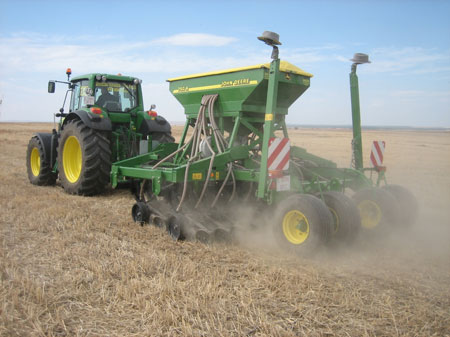
Los resultados obtenidos pusieron de manifiesto que la práctica de la siembra directa no afectaba al rendimiento de los cereales, consiguiéndose en cambio reducir en un 80% los consumos energéticos. Poco después, se fueron extendiendo este tipo de ensayos a otras regiones españolas, destacando los realizados, desde 1982 hasta la actualidad, por el Instituto Andaluz de Investigación y Formación Agraria, Pesquera, Alimentaria y de la Producción Ecológica (IFAPA) en Andalucía, en la finca Tomejil en Carmona (Sevilla), en colaboración con la Escuela Técnica Superior de Ingenieros Agrónomos de la Universidad de Córdoba; los realizados por el Instituto Técnico y de Gestión Agraria en Navarra; y los llevados a cabo en Castilla y León por los departamentos técnicos de empresas relacionadas con el sector agrario.
La evolución, tanto a nivel mundial como a nivel nacional, ha ido estrechamente ligada a la disponibilidad de herramientas adecuadas para asegurar el éxito en la implantación de los sistemas de agricultura de conservación. El desarrollo de productos herbicidas de acción total y sin efecto residual, así como la progresiva aparición de maquinaria especializada con mayores posibilidades de adaptación a las condiciones locales de la explotación, ha favorecido un rápido aumento, en los últimos años, de la superficie de cultivos bajo estas prácticas.
John Deere, 'Patrocinador de Oro' del Congreso
John Deere, como 'Patrocinador de Oro', tuvo la oportunidad de exponer en el congreso algunas de sus ideas sobre un tema tan importante como la agricultura de conservación, ante destacados científicos internacionales, autoridades, productores de semillas y empresarios agrícolas. Christiane Albrecht, especialista de Producto de John Deere llevó a cabo la ponencia 'Un mundo, ¿solo una práctica agrícola?', mostrando de forma general las diferencias de las distintas prácticas agrícolas utilizadas en distintos puntos del mundo y comparando las mismas con las utilizadas actualmente en Europa a partir de ejemplos de Francia, Polonia y Rusia.
Ante más de 150 participantes de distintos países, Albrecht pudo presentar los resultados obtenidos con el acuerdo de colaboración existente entre John Deere y la Universidad de Hohenheim (Alemania). Los resultados muestran como existe un cambio continuo hacia similitudes en las prácticas de labranza utilizadas en el ámbito global, aunque aún queda un largo camino por recorrer para lograr un enfoque único de las prácticas agrícolas, debido principalmente a diversos modos de pensar y las diferencias en las condiciones de cultivo (clima, agronomía, política, tradición y financiación).
